Braving the tides: How do children learn in the remote island province of Tawi-Tawi, Philippines?
Discover how children living on remote islets in the Philippines are gaining joyful learning with BRAC.
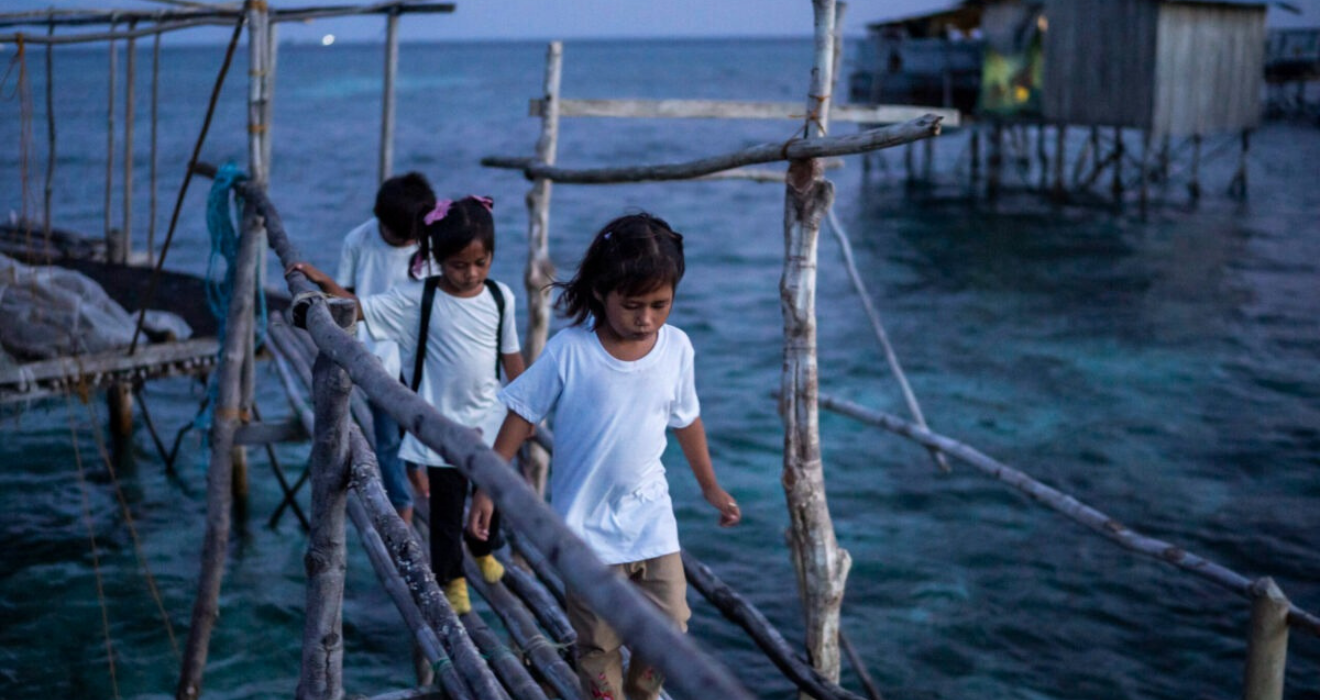
BY Shituma Tajrin
This story was originally published on BRAC International. It has been republished here.
Tawi-Tawi is the southernmost island province in the Philippines, sharing sea-borders with Malaysia and Indonesia. It is also known as the seaweed capital of the country. The province consists of the main Tawi-Tawi island and 106 surrounding islands and islets.
While the province leaves every travel enthusiast enthralled, behind the scenic beauty of clear water and rocky-green mountains, Tawi-Tawi struggles to meet basic needs like education, health care, and employment opportunities.
Based on the 2021 Family Income and Expenditure Survey, the poverty rate in Tawi-Tawi is at 36.5%, placing it as one of the poorest provinces in the Bangsamoro Autonomous Region in Muslim Mindanao (BARMM).
According to the Population Census (2020), 40% of Tawi-Tawi’s population is between 0-14 years. Due to its remoteness and limited government services and funding, the majority of the barangays (the administrative district forming the most local level of government) does not have access to formal education.
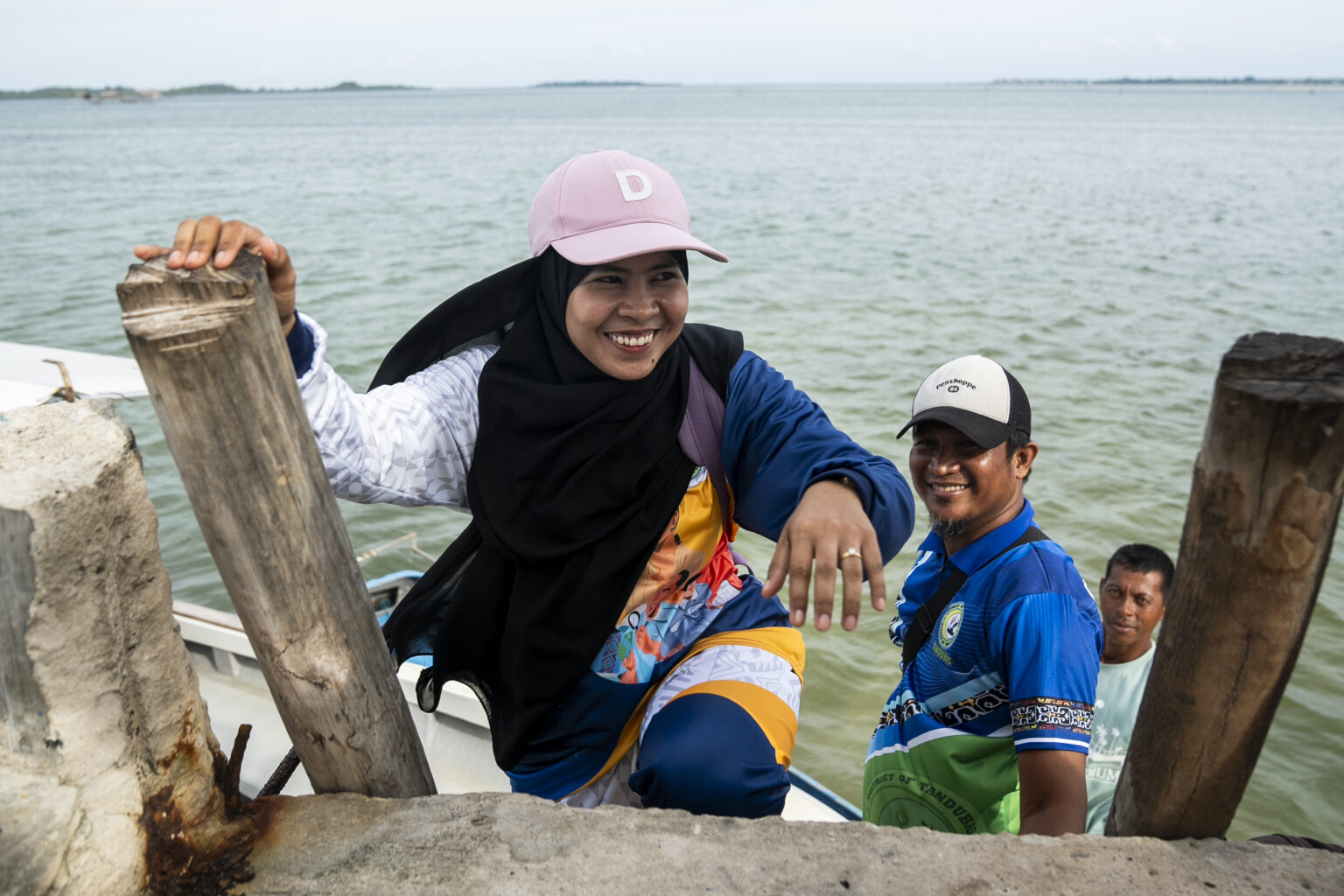
Darwina S. Tusay, an AKAP Learning Facilitator for Grade 1, climbs the stairs after riding a speedboat in Tawi-Tawi.
Darwina Tusay is a facilitator at a learning center in Lahay-Lahay. “The islet I grew up in did not have any formal schools. Because both my parents were teachers and they prioritized education for me, I got the opportunity to commute to a neighboring islet with them and complete my secondary education. I went through a lot of struggles to complete my education,” Darwina shared.
Support children to play and learn, no matter where they live.
Access to quality primary education is the first step to undoing poverty. With the motto, ‘No bangsamoro child left behind’, the Abot Kaalaman sa Pamilyang-Bangsamoro (AKAP) program brings equitable access to quality elementary education in the barangays of the BARMM of The Philippines, which are without schools.
The AKAP program’s seven learning centers are spread across the main island and islets of Tawi-Tawi. Over 400 learners attend these centers under the supervision of 16 learning facilitators who are trained by BRAC.
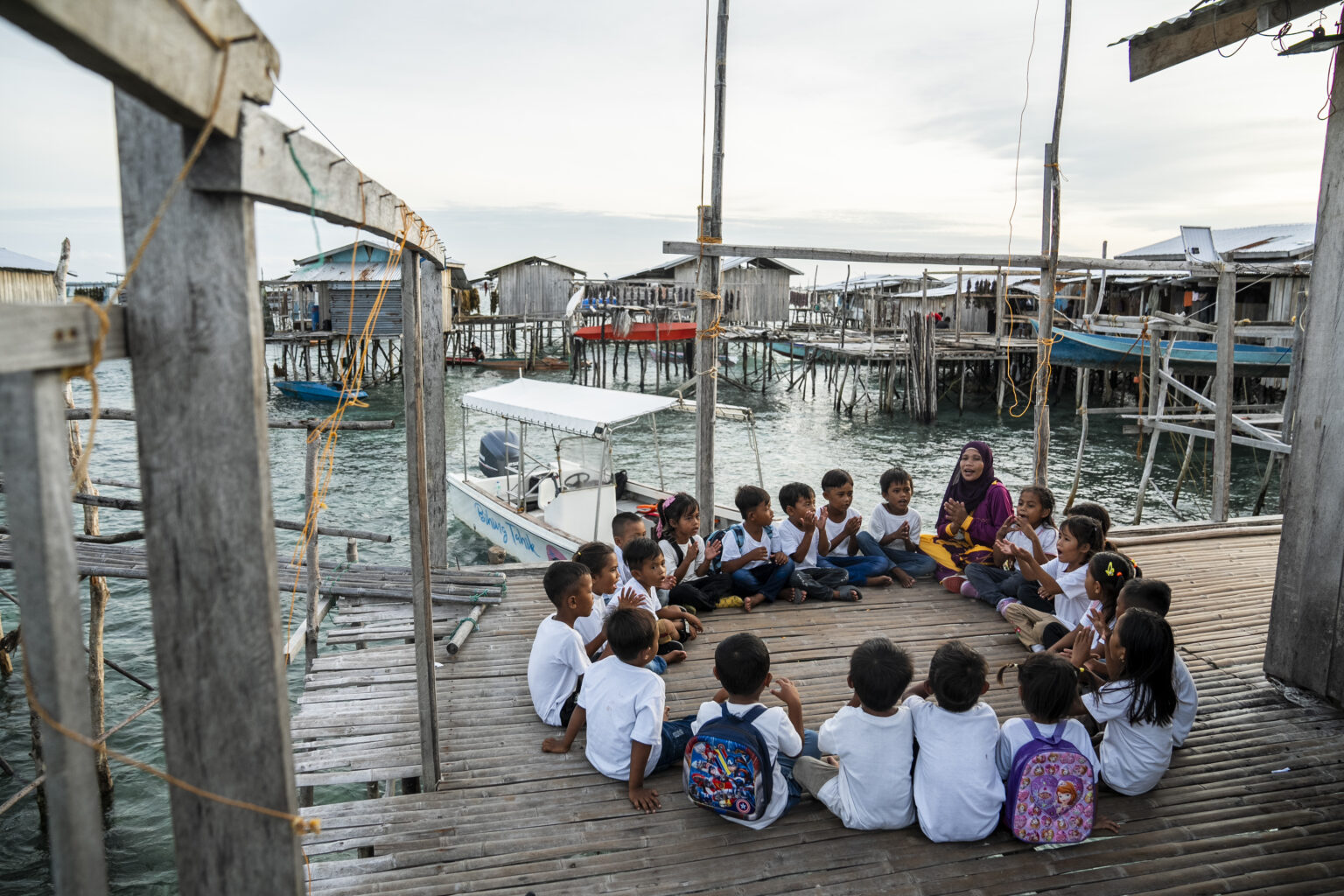 An AKAP Learning Facilitator leads a song to students at Siapas Learning School in Tawi-Tawi.
An AKAP Learning Facilitator leads a song to students at Siapas Learning School in Tawi-Tawi.
“It’s a two-hour ride on a motor-run banca (local wooden boat) on a clear day to reach the islet where I teach. I have been taking this ride for the last four years because I truly support what the AKAP program is trying to do. We are reaching barangays that do not have any school. Children from neighboring islets join my center in bancas. Sometimes conflict erupts, and on some days, the weather makes it risky to be on the waters. For this reason, residency service has been arranged for children coming from surrounding islets,” added Darwina.
Some islets are more prone to high tides and typhoons. People of these islets are often referred to as ‘sea nomads’. These islets are often excluded from basic services like education. Buan in the barangay Siapa is one such islet where people of the Tausug and Sinama tribes live. Here, AKAP operates a floating learning center with 67 learners, many coming from neighboring islets.
“My husband and I farm seaweed. We moved to Buan two years ago when rising sea water made our islet unlivable. I never went to school and neither did my husband. Childhood for us was swimming and playing all day. I was surprised to see a learning center opening just next door, and that too, free of cost. All my three daughters go there. They have taught me to write my name,” shares a parent.
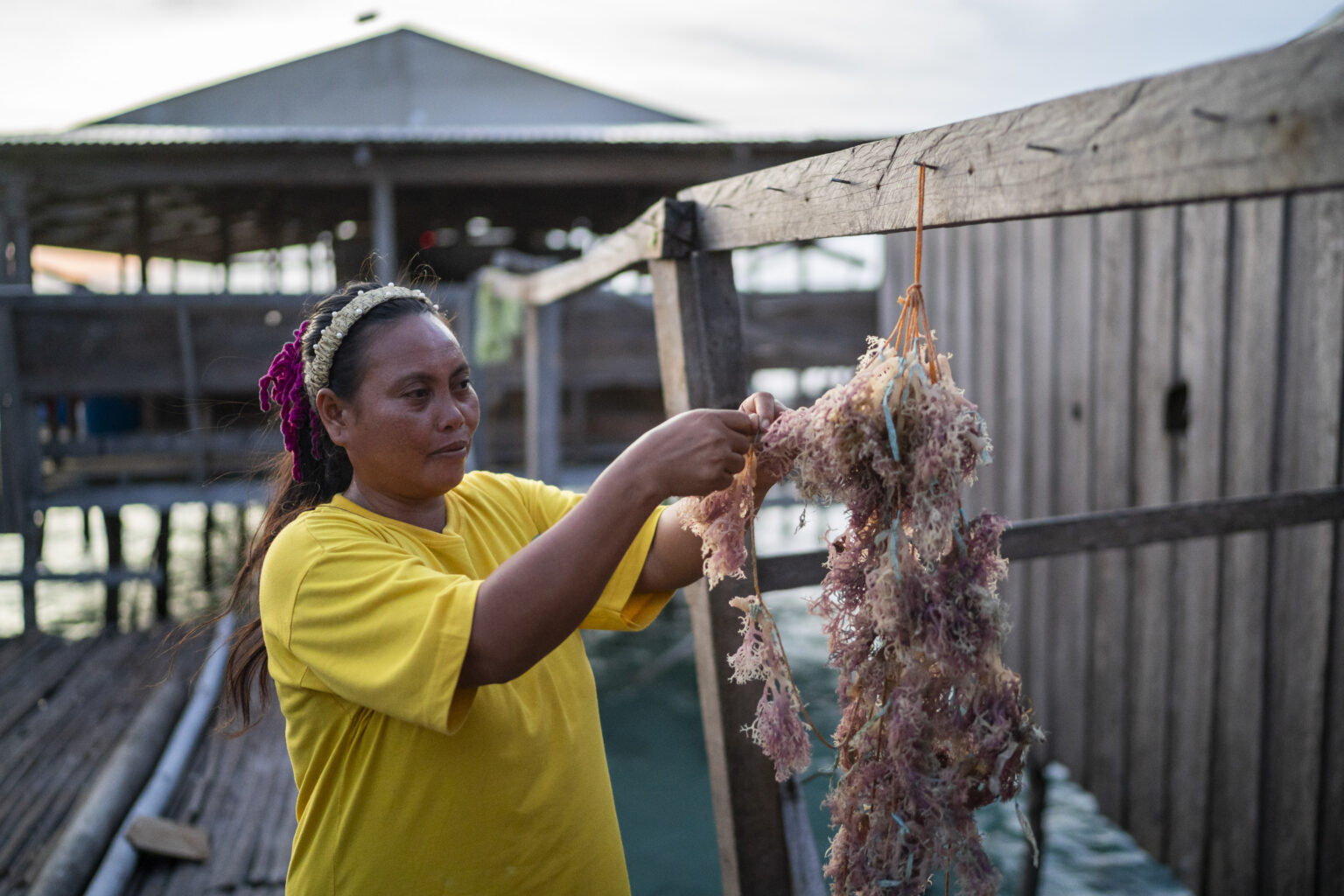 Arselina Abdu sorts seaweeds in Tawi-Tawi
Arselina Abdu sorts seaweeds in Tawi-Tawi
“Children here learn swimming by the time they are two years old. This is necessary for survival. Imagine children crossing narrow bridges, it is inevitable that someone will fall. I am glad that my children are at the center from 8am to 3pm. I know they are safe. And it makes me happy when I hear them recite poems,” added another parent living in Buan.
One does expect better education facilities in the capital province. Despite having a formal education system and many schools in place, multiple barangays in Tawi-Tawi’s capital Bongao remain without schools. Three of AKAP’s learning centers are operating in the neighboring barangays of Bongao, reaching 200 learners.
The centers under AKAP program provide education from Kindergarten to Grade 3. Each center is linked to a public school, referred to as ‘catchment school’. After completing Grade 3, learners are expected to join a catchment school which are often at a distance, making it challenging for learners to join. To ensure continuity, a few AKAP learning centers have started to host Grade 4, which is managed by the catchment school. This too comes with challenges as a result of a lack of facilitators and infrastructure.
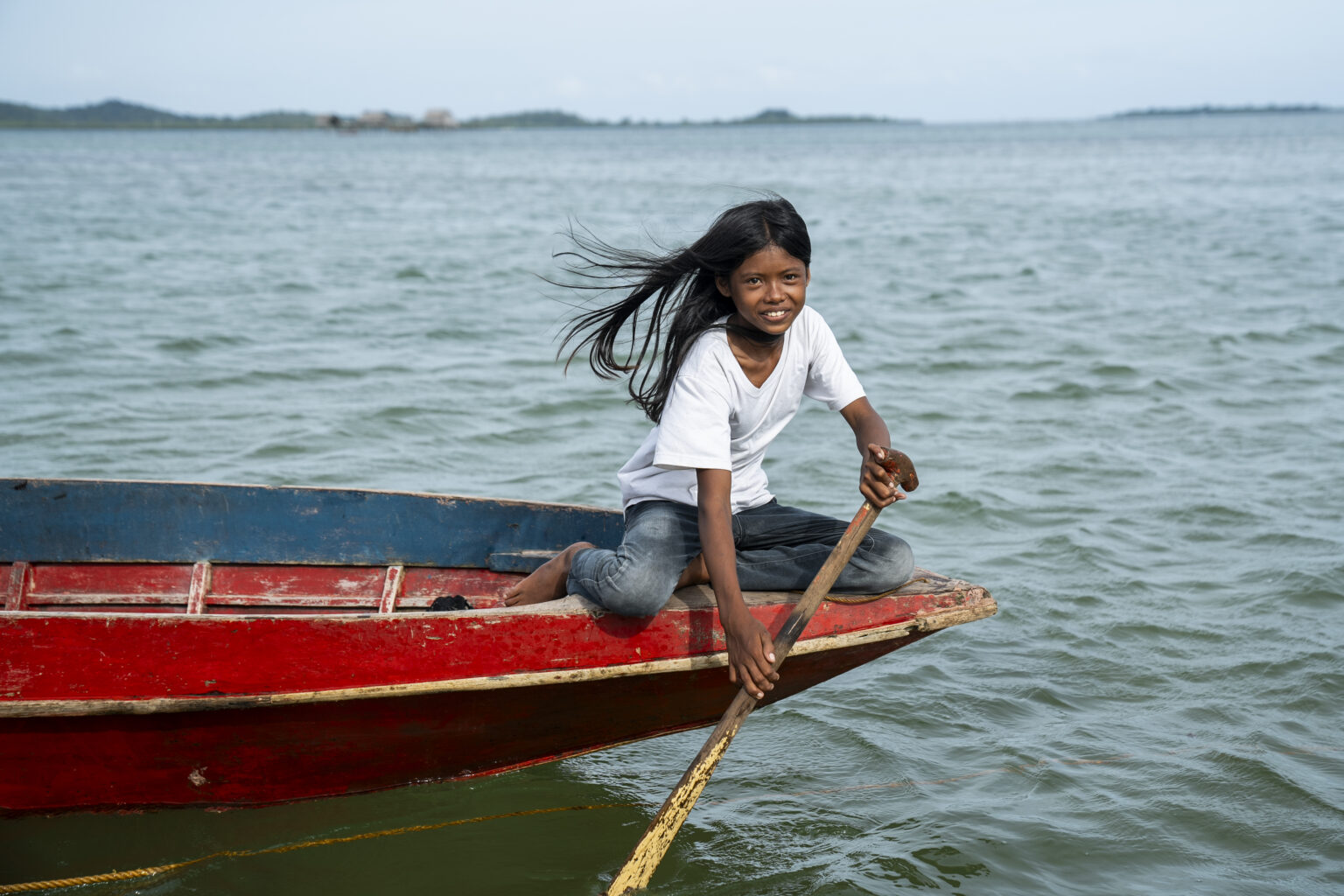 Surada A. Kasim, a student, rows a boat in Tawi-Tawi
Surada A. Kasim, a student, rows a boat in Tawi-Tawi
Despite having limited access to education, the dreams of the children of Tawi-Tawi are as deep as the sea that surrounds them. 11-year-old Surada Kasim loves to row her father’s banca. She wants to join the coast guard when she grows older.
The question is, will Surada have the tools and opportunities to equip her to build a career she dreams of?
Expanding learning centers to provide complete elementary education will create a smooth transition into higher levels of education. At BRAC we believe every child, regardless of their circumstances, deserves equitable access to quality education.
Support children to play and learn, no matter where they live.
AKAP is a flagship education program of the Ministry of Basic, Higher and Technical Education with support from the Government of Australia through the Education Pathways to Peace in Mindanao Program. The program runs 131 learning centers, covering 62% of the estimated 210 barangays in the BARMM region of The Philippines that lack schools.
BRAC, an implementing partner, plays a critical role in building the knowledge, skills, and teaching practices of the learning facilitators who deliver lessons at AKAP learning centers.
Shituma Tajrin is Senior Manager, Program Communications at BRAC International. Photos by: Lisa Marie David.